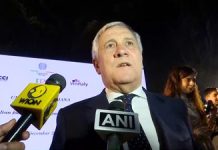The 23rd meeting of the Council of Heads of Government (CHG) of the Shanghai Cooperation Organisation (SCO) will begin on Tuesday in Pakistan’s Islamabad. The two-day summit has drawn top leaders from member states and is taking place under stringent security measures. Key routes and businesses in both Islamabad and its neighbouring city, Rawalpindi, have been closed due to security concerns.
External Affairs Minister S Jaishankar is set to land in Pakistan today, October 15, to attend the SCO meet. It will be for the first time in nearly nine years that an Indian foreign minister will travel to Pakistan, even as the ties between the two neighbours remain frosty over the Kashmir issue and cross-border terrorism emanating from Pakistan.
SCO SUMMIT: 10 POINTS
- In preparation for the summit, Pakistani authorities have taken extensive measures to address ongoing political unrest and militant violence. Troops have been deployed throughout Islamabad, and hundreds of supporters of jailed opposition leader Imran Khan have been arrested. New laws limiting protests have also been enforced, although the Pakistan Tehreek-e-Insaf (PTI) party recently called off a planned demonstration.
- To ensure safety, the Pakistani government declared a public holiday in Islamabad for three days, starting Monday, with schools and businesses closed and large contingents of police and paramilitary forces patrolling the city.
- According to Pakistan’s interior ministry, army troops are in charge of securing the Red Zone, which houses the parliament, the diplomatic enclave, and the main summit venues.
- The Summit will kick off with the arrival of delegations on Tuesday, followed by a welcome dinner hosted by the Pakistani Prime Minister. On Wednesday, the official proceedings will include remarks by Pakistan’s Prime Minister, document signings, and concluding statements. The leaders are also scheduled to issue media statements and attend an official luncheon.
- Pakistan’s capital was under strict security lockdown as Chinese Premier Li Qiang landed in Islamabad on Monday to attend the SCO meeting, as well as for a four-day bilateral visit. Li’s visit is the first by a Chinese premier to Pakistan in 11 years. Pakistan’s Prime Minister Shehbaz Sharif received Li at the airport.
-
During the visit, the Chinese Premier is expected to engage in discussions with Pakistani Prime Minister Shehbaz Sharif, President Asif Ali Zardari, and other key political and military figures to strengthen bilateral relations. He is also expected to inaugurate the CPEC-funded Gwadar International Airport in Balochistan, a region bordering Afghanistan and Iran.
-
The leaders from SCO member states attending the summit include Chinese Premier Li Qiang, Belarus Prime Minister Roman Golovchenko, Kazakhstan Prime Minister Olzhas Bektenov, Russian Prime Minister Mikhail Mishustin, Tajik Prime Minister Kohir Rasulzoda, Uzbek Prime Minister Abdulla Aripov, Kyrgyzstan’s Chairman of Ministers Cabinet Zhaparov Akylbek, and Iran’s First Vice President Mohammad Reza Aref.
-
Shortly after his arrival in Islamabad, the External Affairs Minister is likely to attend a banquet reception hosted by Pakistan Prime Minister Shehbaz Sharif. Both sides have already ruled out any bilateral talks between Jaishankar and his Pakistan counterpart Ishaq Dar on the sidelines of the SCO heads of government summit.
-
In August, Pakistan invited Prime Minister Narendra Modi to the SCO summit. Jaishankar’s visit to Pakistan assumes significance as it is seen as a significant decision on India’s behalf. In his recent address at an event, Jaishankar said, “Like with any neighbour, India would certainly like to have good relations with Pakistan. But that cannot happen by overlooking cross-border terrorism and indulging in wishful thinking.”
-
Pakistan assumed the rotating chair of the SCO CHG for 2023-24 at the previous meeting, held in Bishkek in October 2023. The SCO was founded at a summit in Shanghai in 2001 by the presidents of Russia, China, the Kyrgyz Republic, Kazakhstan, Tajikistan and Uzbekistan. India and Pakistan became its permanent members in 2017.




